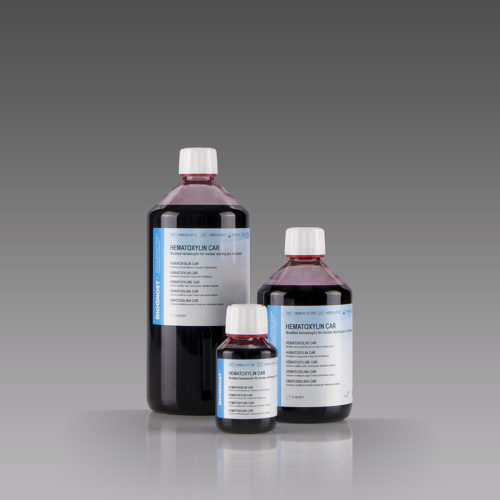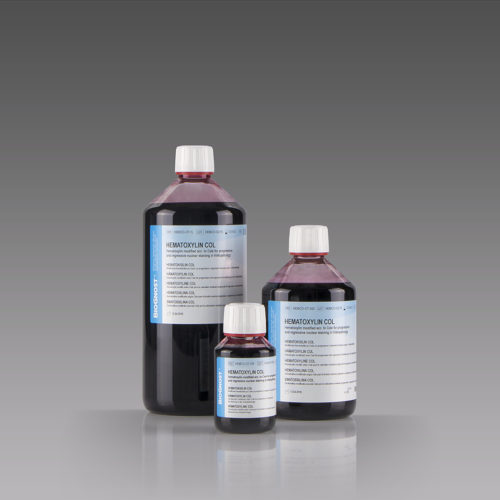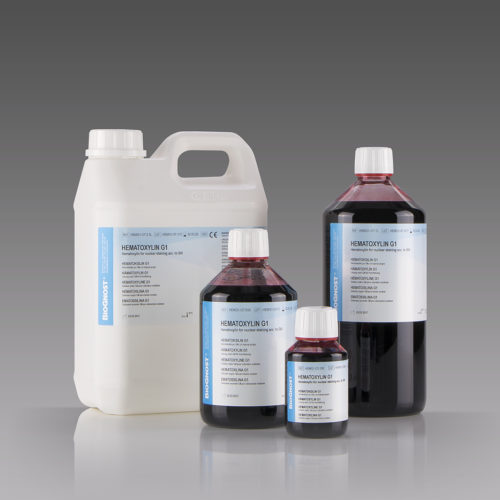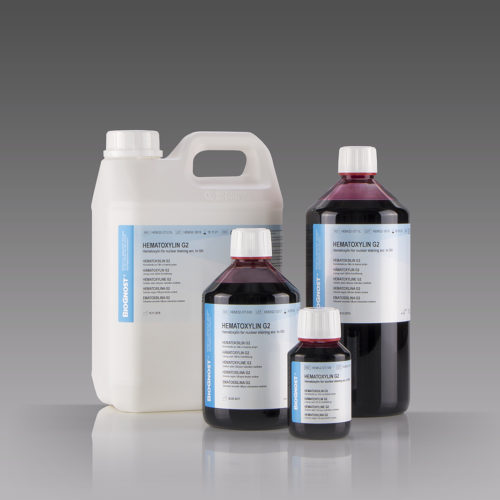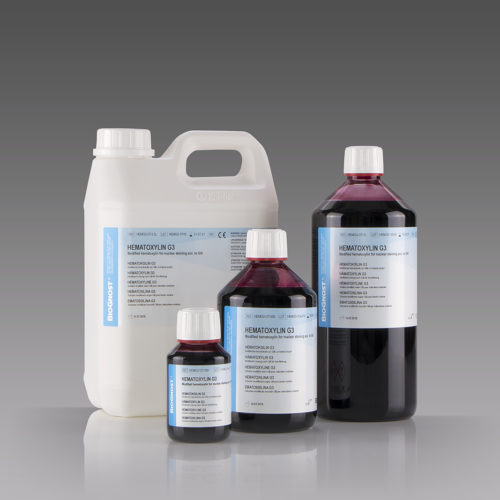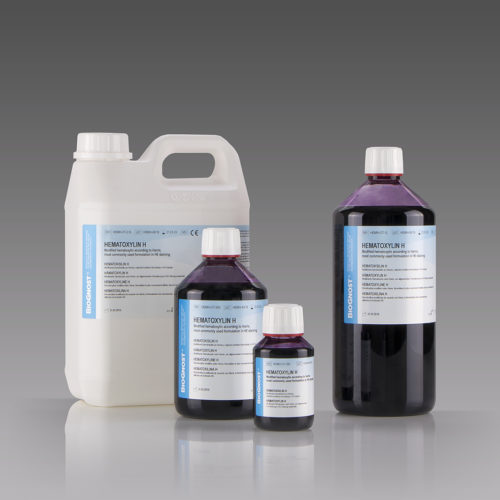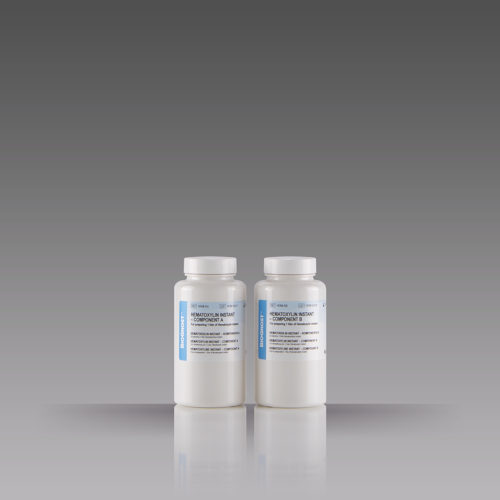Hematoxylin reagents
Each of BioGnost’s Hematoxylins is specially stabilized in order to maintain the reagent’s reactivity for prolonged periods of time, as well as to maintain the quality of the reagent. Every staining provides a crystal clear and highly detailed image of the cell’s nucleus, which in turn makes abnormal or pathological changes easier to detect.
-
Additional staining reagents and solutions/Hematoxylin reagents/Histology and cytology/Standard histology staining reagents
ErioGnost reagent
Acid fast reagent for nuclear staining, comparable to hematoxylin staining. Ecologically acceptable synthetic replacement for hematoxylin reagents.
-
Hematoxylin CAR
Modified hematoxylin according to Carazzi for delicate nuclear staining without staining cytoplasmic components. Reagent for progressive staining of frozen sections in histopathology.
-
Hematoxylin COL
Modified hematoxylin according to Cole, contains iodine. Weaker intensity reagent for progressive and regressive staining in histopathology.
-
Hematoxylin G1
Hematoxylin according to Gill, ideal for staining goblet cells. New generation reagent for delicate progressive staining in histopathology, cytology and for counterstaining in immunohistochemistry.
-
Hematoxylin G2
Hematoxylin according to Gill, contains double concentration of hematoxylin compared to Hematoxylin G1. Moderate intensity new generation reagent for progressive staining in histopathology, cytology and for counterstaining in immunohistochemistry.
-
Hematoxylin G3
Modified hematoxylin contains triple concentration of hematoxylin compared to Hematoxylin G1. Strong intensity new generation reagent for progressive and regressive staining in histopathology and progressive staining in cytology.
-
Hematoxylin H
Modified hematoxylin according to Harris, most commonly used formulation in HE staining. Strong intensity reagent for progressive and regressive staining in histopathology.
-
Hematoxylin Instant kit
Two-component kit that contains ready-to-use powders for preparation of hematoxylin reagent for progressive and regressive nuclear staining in histopathology and cytology.



